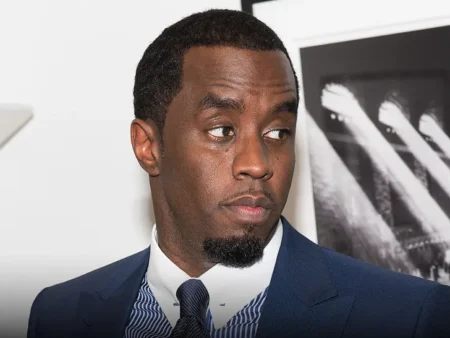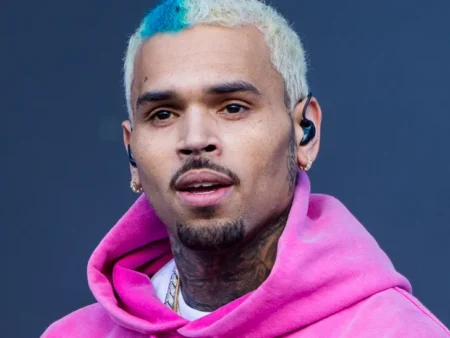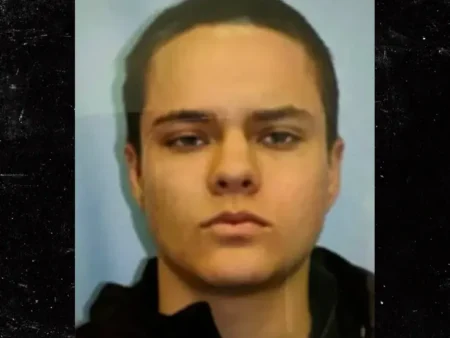Drake’s Legal Fight Against Universal Music Group Intensifies Over Kendrick Lamar’s ‘Not Like Us’ Defamation Lawsuit
Drake is embroiled in a high-stakes legal battle with Universal Music Group (UMG) over his defamation lawsuit related to Kendrick Lamar’s controversial track “Not Like Us.” The lawsuit has now escalated into a contentious dispute over scheduling, as Drake’s legal team pushes back against UMG’s attempts to delay key proceedings. At the center of the conflict is a pre-trial conference scheduled for April 2, which Drake’s attorneys insist should take place as planned, despite UMG’s request for a postponement.
The Clash Over Scheduling: UMG vs. Drake’s Legal Team
In a letter to Judge Antonio Vargas on February 24, Drake’s attorney, Michael J. Gottlieb, strongly opposed UMG’s attempt to delay the pre-trial conference. UMG had claimed that Drake was preparing to withdraw key allegations from the lawsuit, but Gottlieb dismissed this accusation, arguing that the dispute is centered on one crucial factual issue. Even if Drake were to amend his claims, Gottlieb contended, it would not impact the overall case significantly.
At the heart of the clash is UMG’s desire to postpone the April 2 hearing. The music giant hopes that the judge will rule on its motion to dismiss the case before the pre-trial conference takes place, with a decision due by March 17. However, Drake’s legal team is adamant that the conference proceed as planned, emphasizing the urgency of the situation and the need to begin discovery—a step UMG has resisted, claiming it is premature given the pending dismissal motion.
The Defamation Allegations: Drake vs. “Not Like Us”
Drake’s defamation lawsuit stems from Kendrick Lamar’s track “Not Like Us,” which the rapper claims falsely accuses him of being a pedophile and incites violence against him. According to Drake, the lyrics in the song have had a damaging effect on his reputation, leading to a wave of online hate speech and backlash. He argues that the defamatory lyrics, coupled with UMG’s alleged role in promoting the track, have caused significant harm to both his personal and professional life.
In court filings, Drake accuses UMG of orchestrating a campaign to turn “Not Like Us” into a viral hit, despite its damaging and defamatory content. He claims that the company employed “unlawful” tactics to inflate the song’s popularity, including manipulating streaming numbers and radio play to boost its reach. Drake’s team argues that these actions were part of a deliberate effort to generate buzz around the track, regardless of the harm it would cause him.
The Fallout: Online Hate and Personal Danger
Drake’s defamation claim is not just about the impact of the song’s lyrics but also the real-world consequences that followed its release. The rapper cites a surge of online hate speech that branded him as a sex offender, further escalating the harm caused by the defamatory lyrics. He also refers to a disturbing incident that took place shortly after the song hit the airwaves: a shooting at his Toronto home, which left a security guard injured.
The shooting was just one of several incidents that Drake alleges were directly tied to the release of “Not Like Us.” He points to multiple trespassing incidents and increased threats to his safety, which he claims were fueled by the negative publicity generated by the song. For Drake, the situation goes beyond simple defamation—he sees it as a matter of personal security, with the fallout from the track putting both his reputation and his life at risk.
UMG’s Responsibility: Alleged Misconduct and Delayed Justice
According to Drake, Universal Music Group bears significant responsibility for the fallout surrounding “Not Like Us.” He argues that the company’s actions not only contributed to the viral spread of the song but also helped create the climate of hate and violence that followed. By allegedly manipulating streaming data and radio play, UMG is accused of using unethical tactics to ensure the track’s success, regardless of its content.
Drake’s legal team insists that delaying the case will only prolong the damage caused by UMG’s misconduct. They argue that the sooner the case can proceed, the sooner justice can be served, allowing Drake to seek accountability for the harm caused by the song. With UMG pushing for delays and the rapper’s team fighting to move forward, the legal battle over “Not Like Us” shows no signs of slowing down.
A Super Bowl Performance Complicates Matters
Adding another layer of complexity to the case is Drake’s upcoming Super Bowl performance, which is being cited by his legal team as a key factor in the timing of the proceedings. The Super Bowl is one of the biggest events of the year, and it’s clear that Drake’s legal team is keen to avoid any distractions during this high-profile moment in his career. With the pressure mounting from both the lawsuit and the performance, the rapper’s attorneys are determined to push for a resolution, arguing that the harm caused by UMG’s actions must be addressed without further delay.
The Stakes: Defamation, Reputation, and Legal Precedent
This lawsuit is about more than just Drake’s personal grievances; it has the potential to set a significant legal precedent in the entertainment industry. If successful, the case could send a powerful message to record labels, artists, and streaming platforms about their responsibility in promoting content that could cause harm to individuals’ reputations. Drake’s fight against UMG is not just about seeking damages but about holding the industry accountable for its role in amplifying defamatory and harmful material.
As the legal proceedings continue to unfold, all eyes will be on the courtroom, where Drake is determined to fight for justice. With each new development, it becomes clearer that this case is not just a battle over lyrics and streaming numbers—it’s a battle for the control of artists’ reputations in an increasingly digital world. For Drake, the stakes couldn’t be higher.








